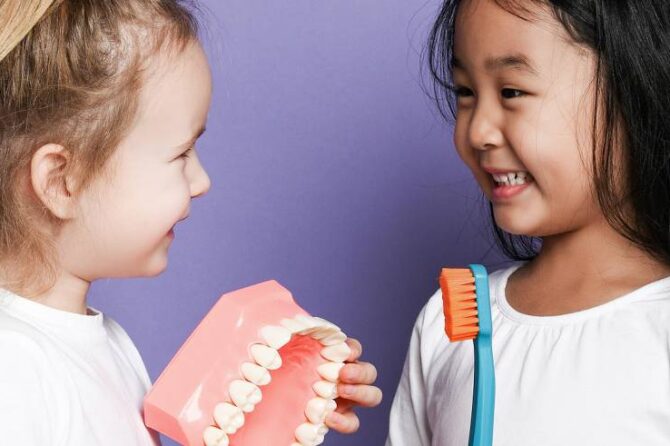
“Teaching Dental Hygiene To Preschoolers”
Having healthy teeth is very important for preschoolers. Not only do they need healthy teeth to chew their food, but they also need them to speak clearly. Teaching dental hygiene to preschoolers is a great way to help ensure that they have healthy teeth as they grow older. There are many ways to teach dental hygiene to preschoolers, and it can be a fun activity for the whole family. By teaching your child about proper dental care early on, you can help them maintain good oral health for the rest of their life.
In this blog post, we will explore some fun and engaging ways of ‘teaching preschoolers dental hygiene to preschoolers’ so they can have healthy teeth and a happy smile!
Importance of brushing teeth for preschoolers
Teaching brushing teeth to preschool children is essential to prevent tooth decay, and there are several ways to make this process fun. One easy way is by involving toys and other visual and auditory aids. You can also use tooth mock-ups to encourage children to practice brushing their teeth. Brushing the teeth is very crucial as it:
Helps remove food and plaque from teeth:
Brushing teeth helps to remove food and plaque from teeth. Plaque is a sticky film of bacteria that forms on teeth. If plaque is not removed, it can harden and turn into tartar. Tartar can only be removed by a dentist or dental hygienist.
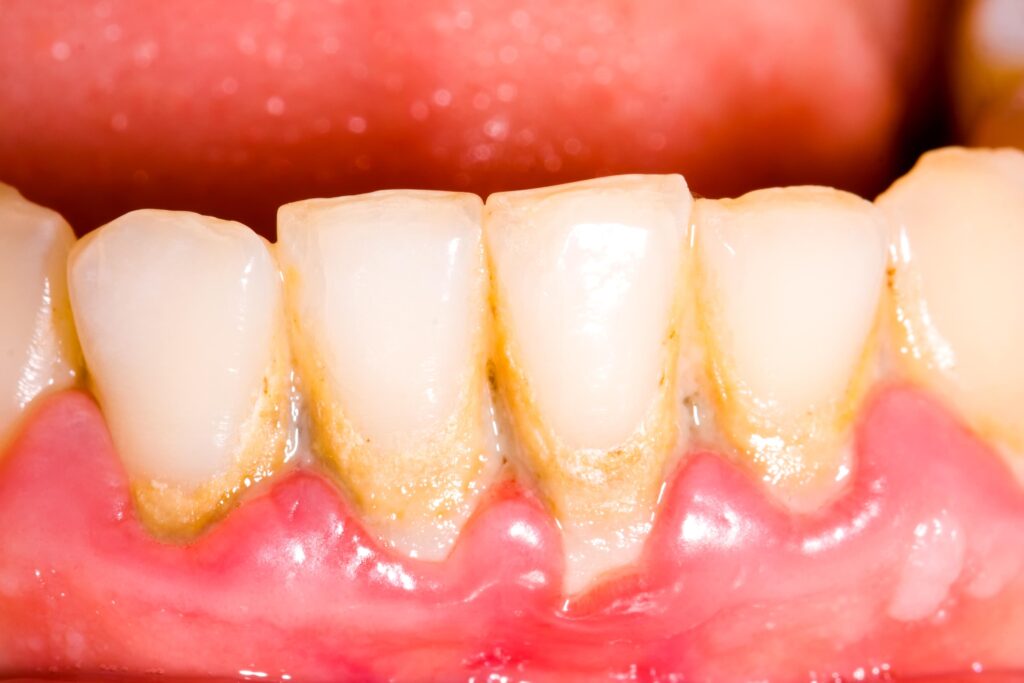
Prevents cavities and tooth decay
Cavities are holes in teeth that are caused by tooth decay. Tooth decay happens when plaque turns into tartar, and the bacteria in tartar start to eat away at the tooth’s enamel or outer layer. Brushing teeth helps to prevent cavities and tooth decay by removing plaque and tartar from teeth.
Keeps gums healthy
Gum disease is an infection of the gums that can damage the gums, bones, and other tissues that support teeth. Brushing teeth helps to keep gums healthy by removing plaque and bacteria from the gum line.
Freshens breath
Brushing teeth helps to freshen breath by removing food particles and bacteria from the mouth.
Helps prevent bad habits from developing
Brushing teeth twice a day helps to prevent bad habits, such as smoking or chewing tobacco, from developing. These habits can stain teeth and cause other oral health problems.
Teaches children about taking care of their bodies
Brushing teeth is an important part of taking care of our bodies. Children who brush their teeth twice a day are more likely to develop good habits that will last a lifetime.
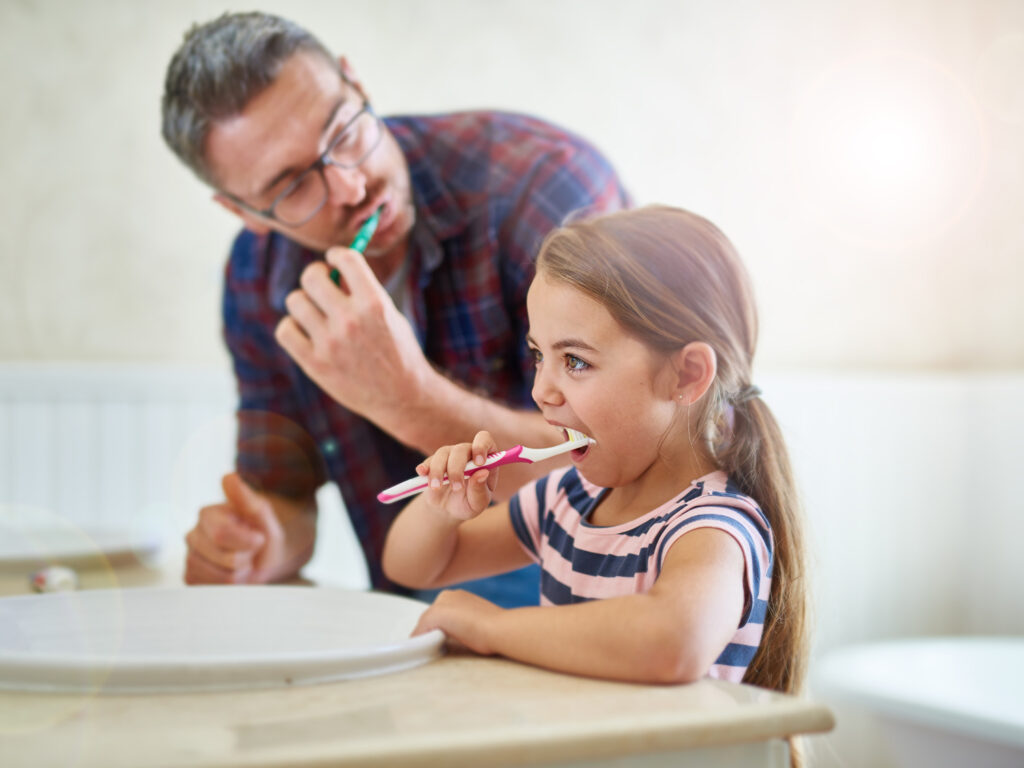
Is fun!
Brushing teeth can be fun! Many different types of toothbrushes and kinds of toothpaste available make brushing teeth an enjoyable experience for children.
Teaching your child the importance of brushing teeth is best done by leading by example. You can begin by teaching them that sugar is bad for their teeth and that they should avoid sugary foods. After introducing these concepts, focus on using natural products to help them keep their teeth in good condition.
When teaching kids how to brush their teeth, remember that you teach them a lifelong habit. This means you must be consistent and patient. Children may not be enthusiastic about brushing their teeth, but if you demonstrate good dental hygiene, they will follow your lead.
Teaching children the importance of brushing their teeth early is crucial for developing healthy teeth and gums.
Brush teeth twice a day
Brushing your child’s teeth is an important part of dental hygiene. It’s crucial to make sure they brush their teeth twice a day, and you can start by using a soft toothbrush. You can also remind your child to brush their teeth after meals. Children should brush their teeth for at least two minutes twice a day.
The first step in teaching your child to brush teeth is setting a good example. It’s important to brush and floss in front of your child, so they can see that it’s a good habit. Brush your teeth twice a day, and make sure you brush your children’s teeth thoroughly. During this time, you should also talk about cavities, bad breath, and tooth decay, so they’ll better understand what’s happening in their mouth.
When teaching dental hygiene tips to preschoolers, you should always remember to make it enjoyable. Preschoolers tend to copy what they see and do, so make the process fun. Start with simple things such as brushing and flossing, and gradually move on to more complicated techniques.
It’s important to encourage children to get regular dental checkups. Regular visits to the dentist will help your child maintain good oral hygiene for the rest of their life. Getting your child’s teeth checked by a dentist will also help you catch problems before they become serious. The dentist will also provide you with tips on how to brush your child’s teeth properly.
How to brush the teeth
One of the most important things to teach preschoolers is how to brush their teeth. This is an essential habit that they will continue throughout their lifetime. It is also a great way to avoid the spread of germs. Keeping teeth clean helps to prevent infections, illnesses, and tooth decay.
One fun way to help your children learn about dental hygiene is to make a chart where they can write down their brushing habits. The chart can include information about how long they brush and how they brush their teeth. If they brush for two minutes or more, they can earn stickers that they can then use to purchase a special treat.
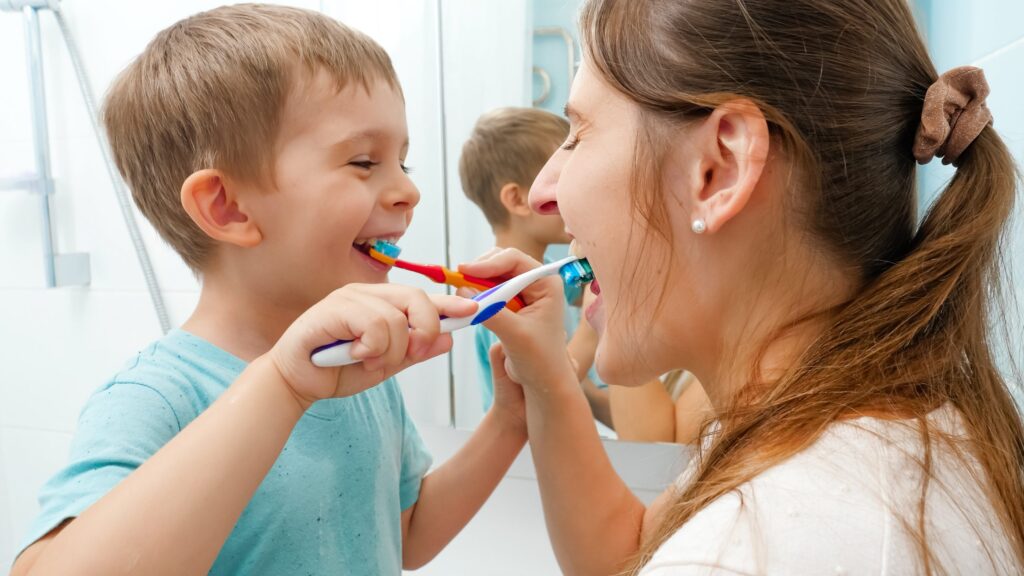
Drink a lot of water
Another great tip for teaching preschoolers about oral hygiene is encouraging children to drink lots of water. It is important to remember that sugary drinks are a source of cavities. To reduce the risk of cavities, children should drink plenty of water after meals. It is also important to maintain drinking fountains that have adequate drainage so that children can rinse their mouths after eating. They should also be taught to drink from a cup, not a straw.
Water is an important part of the daily routine for children. In addition to brushing their teeth and flossing their teeth, water can help kids stay hydrated throughout the day. Water does not contain any sugar and doesn’t allow bacteria to produce acid, so it is a great choice for the health of your child’s teeth. The Healthy Habits for Happy Smiles handout gives preschoolers several tips to promote the benefits of water. Water also helps your children stay healthy overall.
Limit or avoid junk foods
When teaching dental hygiene tips to preschoolers, parents should emphasize that limiting or avoiding junk foods is important. While these are fun treats to eat occasionally, they’re bad for your child’s teeth and gums. They can also cause cavities and other oral problems. Kids must remember that they need a healthy diet of vitamins and minerals.
Kids should be taught that sugar is bad for them. The younger they are, the more they should learn that sugar makes them feel yucky. Instead, they should be offered fresh fruit as a dessert and limit junk foods to two or three times a week.
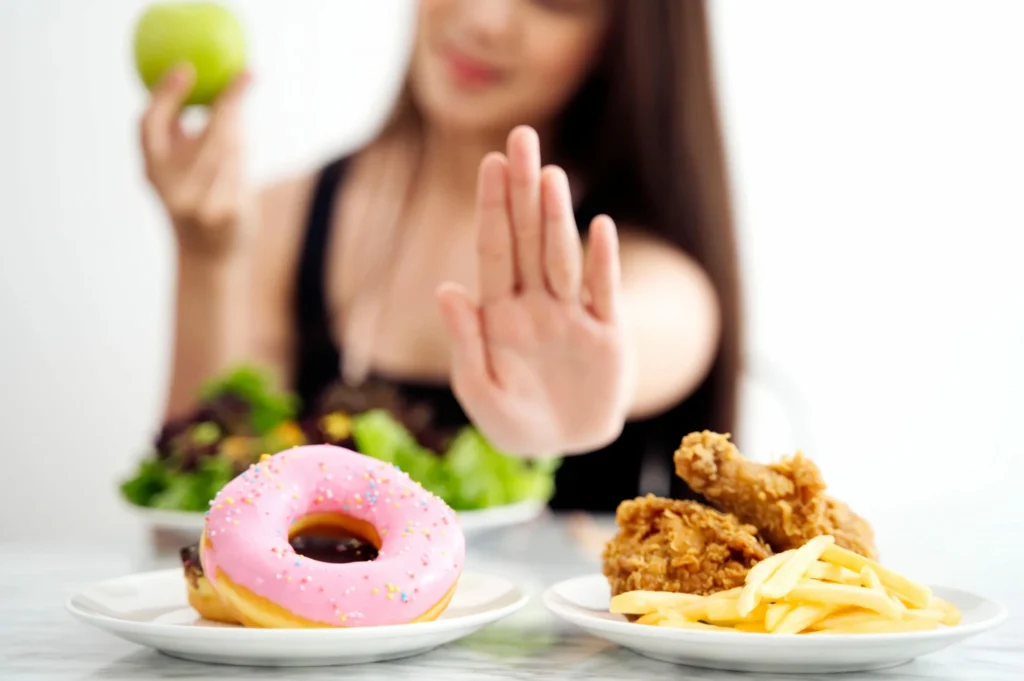
Kids will naturally gravitate toward the foods that are available in the home. Include a wide variety of vegetables and fruits in their daily diet. They should also be offered healthy snacks such as whole-grain crackers, fruit, yogurt, or cheese. Protein-rich foods like eggs and nuts are also a good option. Limiting or avoiding soda and processed food is also important, which can erode teeth.
Tips to make things interested
Here are some tips on how to get your little ones interested in taking care of their teeth.
Make It Fun!
The first step is to make dental hygiene fun for your child. Let them pick out their toothbrush and toothpaste at the store. There are so many fun colors and characters to choose from these days. Let them brush their teeth first at home, and then you can brush yours. This will give them a sense of ownership and responsibility for oral health. And be sure to praise them when they do a good job!
Make It A Game!
Another way to make brushing teeth more fun for your child is to turn it into a game. There are all sorts of games you can play to make the experience more entertaining while still educational. For example, you could sing songs while they brush or see who can brush the longest. You could also turn it into a competition to see who can get their teeth the cleanest. Just be sure to keep it light-hearted and make sure everyone wins in the end!
Make It A Habit!
Of course, the most important part of teaching dental hygiene to preschoolers is making sure it becomes a habit. This means being consistent with your oral hygiene habits as well. Set a good example for your children by brushing twice daily and flossing regularly. And don’t forget to schedule regular dental checkups for the whole family! By following these simple tips, you’ll have healthy teeth and happy kids in no time.
Why is dental health important for preschoolers?
Dental health is important for preschoolers for several reasons.
- First, healthy teeth and gums are essential for proper digestion. When teeth and gums are unhealthy, food can’t be properly broken down and digested, leading to poor nutrition and weight gain.
- Additionally, oral health problems can cause pain and discomfort, negatively impacting a child’s ability to learn and participate in activities at school.
- Lastly, poor dental health has been linked to many serious health conditions, such as heart disease, stroke, and diabetes.
Therefore, it is important to ensure that preschoolers brush their teeth twice daily with fluoride toothpaste, floss daily, and visit the dentist regularly.
What are some tips for teaching dental hygiene to preschoolers?
You can do a few things to help ensure your preschooler develops good oral hygiene habits.
- First, start by modeling proper brushing and flossing techniques yourself.
- It’s also important to ensure your child has a toothbrush that is the right size for their mouth and that they are using fluoride toothpaste.
- You should also help them develop a routine for brushing their teeth, such as doing it after meals or before bedtime.
- Finally, take them to the dentist for regular checkups and cleanings.
Dental hygiene is an important part of overall health, but getting kids to brush their teeth without reminders is not always easy. Brushing teeth doesn’t have to be a chore! With these tips, you can make dental hygiene fun for the whole family. And remember, the most important thing is to
make it a habit. Consistency is key when it comes to keeping those pearly whites shining bright!
Leave a reply